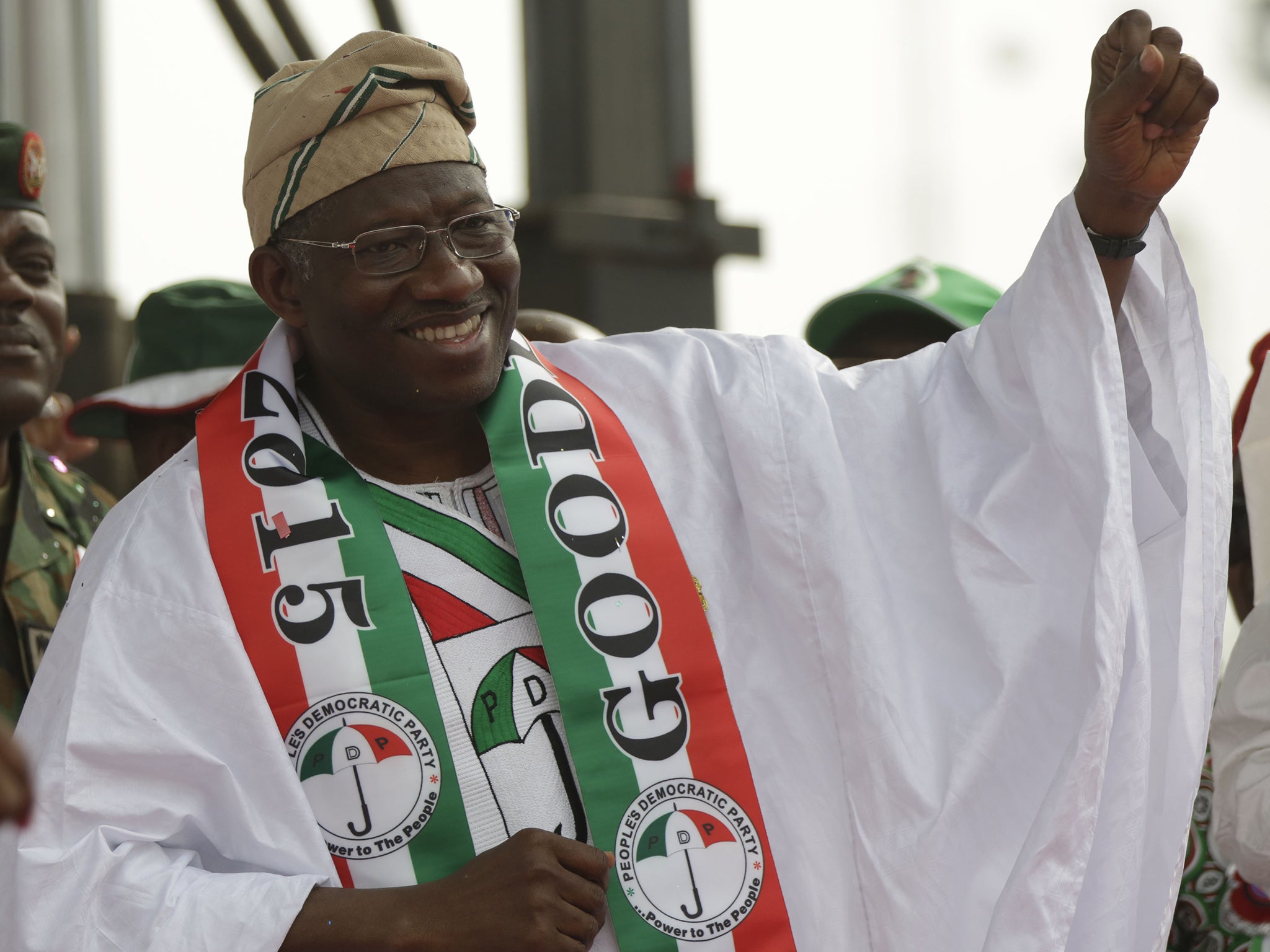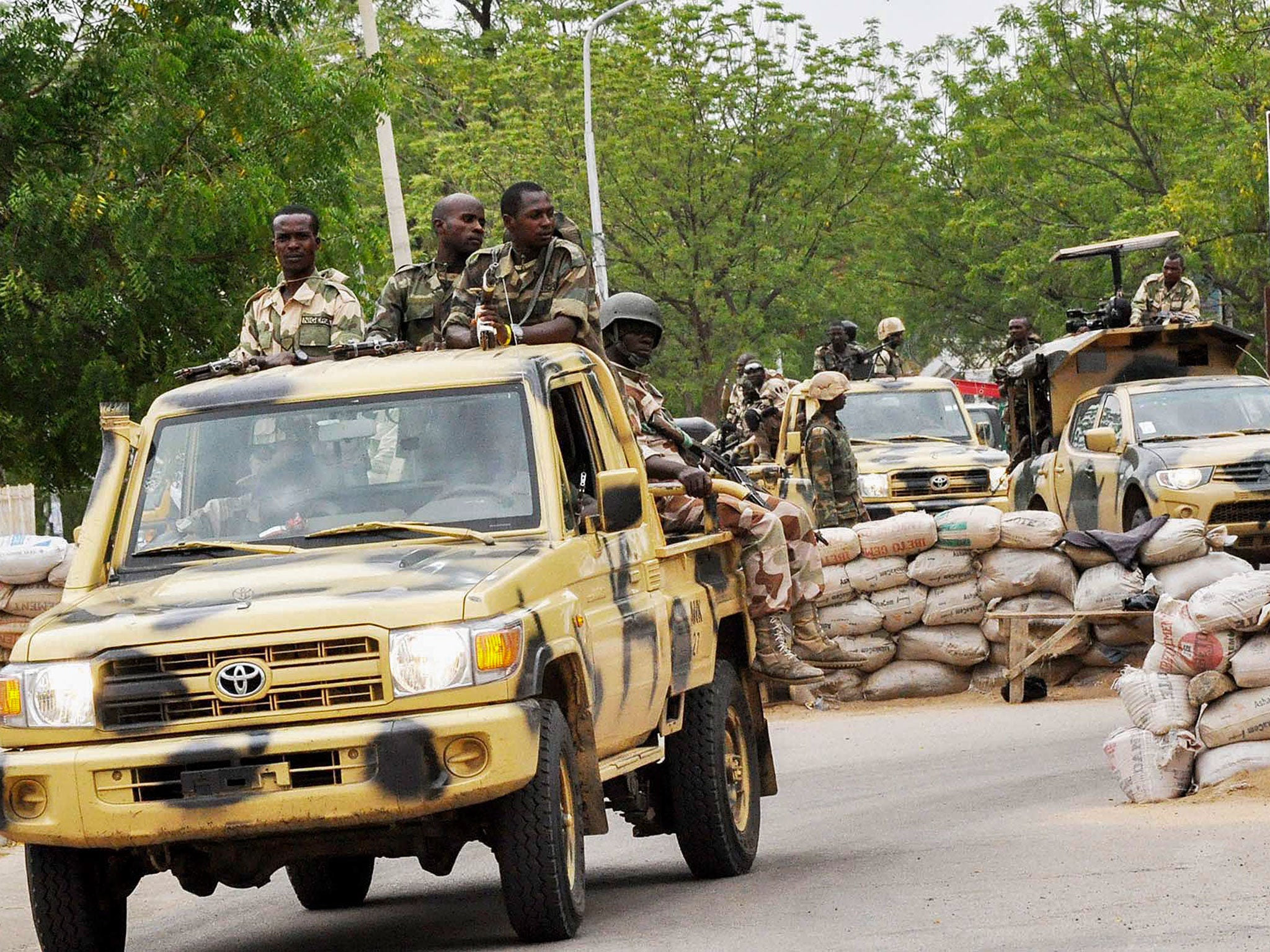Nigerians on the run from Boko Haram risk losing right to vote
Law says people must go home to take part in election

Your support helps us to tell the story
From reproductive rights to climate change to Big Tech, The Independent is on the ground when the story is developing. Whether it's investigating the financials of Elon Musk's pro-Trump PAC or producing our latest documentary, 'The A Word', which shines a light on the American women fighting for reproductive rights, we know how important it is to parse out the facts from the messaging.
At such a critical moment in US history, we need reporters on the ground. Your donation allows us to keep sending journalists to speak to both sides of the story.
The Independent is trusted by Americans across the entire political spectrum. And unlike many other quality news outlets, we choose not to lock Americans out of our reporting and analysis with paywalls. We believe quality journalism should be available to everyone, paid for by those who can afford it.
Your support makes all the difference.Nigerians fleeing a wave of killings by the Islamist group Boko Haram have already lost loved ones, livelihoods and most of their possessions. Now they seem likely to lose their vote.
A presidential election is to be held next month and the law says people must go home to take part.
The electoral commission says it is trying to distribute voter ID cards to the 1.5 million people (according to an Oxfam estimate) displaced by the insurgents, who are fighting for an Islamic state in Nigeria. But for many, the idea of going back to vote in their home constituencies is too harrowing to contemplate.
President Goodluck Jonathan faces the former military ruler Muhammadu Buhari in the election on 14 February, and there are grave doubts whether voting can take place in swathes of the north-east overrun by rebels. As these areas are mostly opposition strongholds, Mr Buhari stands to lose out more than his rival.

The first time Boko Haram attacked Daniel Dunya’s village, dozens of armed men stole the cattle and kidnapped several women. The second time they burned down churches and many houses. By the time they came back, abducting girls and killing the men, he was ready to leave.
“Most of my documents have been lost, including my voter’s card, because I was running away,” Mr Dunya said at the Makholi refugee camp in Adamawa state.
His home lies near the town of Gwoza, in mountains controlled by Boko Haram near the Cameroon border. The militants have declared an Islamic state in the region.
“As a Christian, they will kill me if I go back to my local government area. Boko Haram are still running around there,” he said. He remains optimistic that somehow he will be able to vote. “I’d vote for someone who will bring back peace,” he says.
The independent electoral commission (Inec) hopes it can find a way round the law, which parliament ruled out modifying at the end of last year. Giving out ID cards in refugee camps was itself a departure from the normal rules.
Nearly half of registered voters nationwide have yet to receive new voter cards, the commission said on Tuesday, raising questions about the country’s readiness for the vote. On Monday, Inec set up tents at Modibbo Adama University of Technology in Yola to hand out cards for voters in Madagali, an area controlled by the insurgents. For another insurgent-controlled area, Michika, five schools were designated for card handouts.
At a table piled up with voter cards bound together, volunteers sorted them and read out names to those waiting. But Inec has yet to figure out what to do on polling day. “I don’t know how they will vote yet. We are waiting to hear,” an electoral commissioner said.
Hajaratu Tumba, a farmer, looks puzzled when asked about the election. She hadn’t given it much thought, she said. “When they attacked my village, they killed the men and told the women they are going to convert us. I ran and ran and ran. I stayed in the bush for three days with no food or water,” she said. “I came here with nothing. Just myself.”
Ghana’s President, John Mahama, said yesterday that West African leaders are considering creating a military force to fight Boko Haram and will hold a regional summit next week to discuss the idea. The Economic Community of West African States will seek the support of the African Union for the plans, said Mr Mahama.
Reuters
Subscribe to Independent Premium to bookmark this article
Want to bookmark your favourite articles and stories to read or reference later? Start your Independent Premium subscription today.
Join our commenting forum
Join thought-provoking conversations, follow other Independent readers and see their replies
Comments